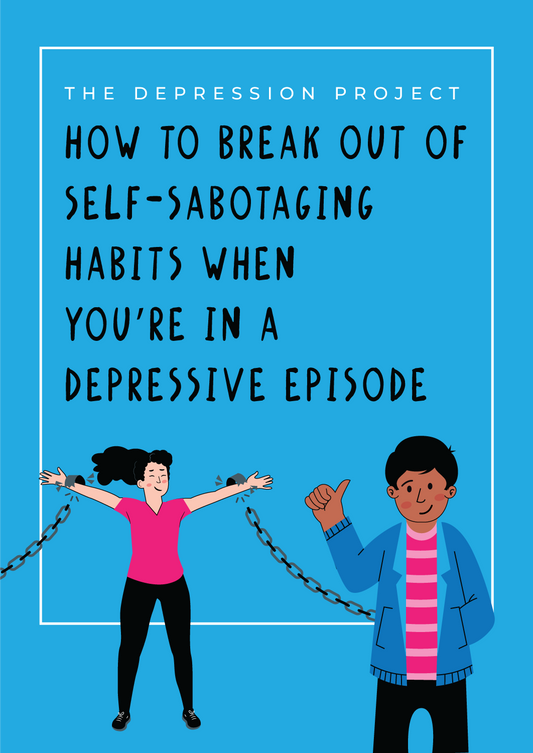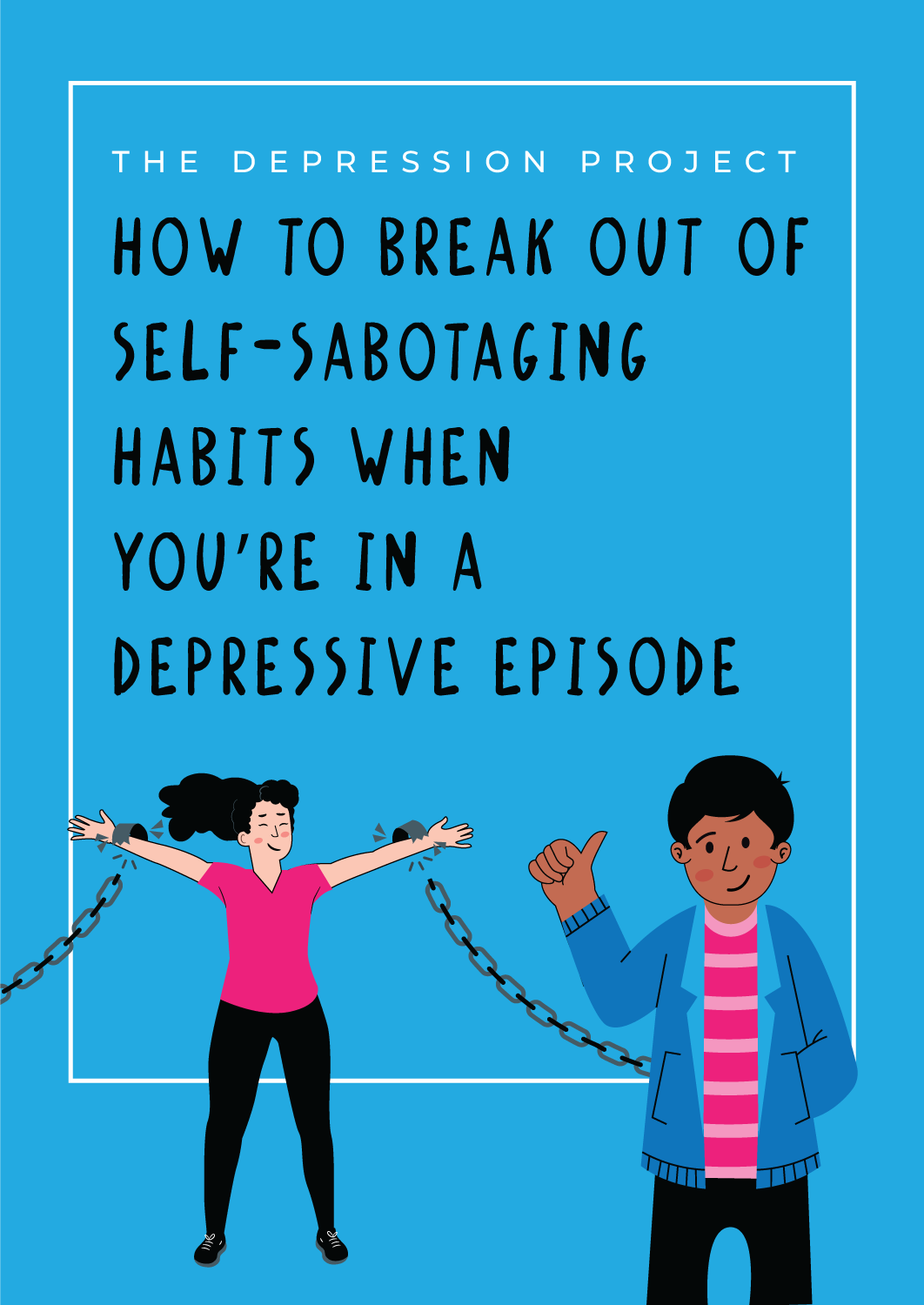
Do You Have A Plan To Break Out Of Self-Sabotaging Habits When You're In A Depressive Episode?
In July of 2021, The Depression Project posed a question to our 3,000,000+ person social media community:
What self-sabotaging habits does depression make you turn to?
Thousands and thousands of people replied, and some of the responses that our community members related to most included:
- “I over-eat … a lot. I’m so much heavier than I was before my depression took hold of me.”
-
“I buy things to ‘cheer myself up’. It’s caused me to go into debt which makes me feel worse, which then causes me to buy even more things!”
-
“I drink to numb the pain.”
-
“I bite the skin around my nails. My fingers are always bloody. Same with my lips – I pick at the dead skin.”
-
“I cut.”
-
“I’m smoking more weed than ever.”
-
“I self-medicate with porn.”
When you’re in a depressive episode, self-sabotaging habits such as these can often be extremely tempting, because they can provide some much-needed relief from negative thoughts, painful emotions, and all of depression's other debilitating symptoms.
However, as you can likely relate to, these self-sabotaging habits also come with negative, long-term consequences - including:
-
Negative Thoughts – such as, for example, “I’m so weak and pathetic for doing [my self-sabotaging habit(s)]”, “I’m such a loser”, “this is why I'll never get better”, “I’m such a failure”, “I’m so irresponsible”, “I’m so fat”, “I’m so stupid for buying things I can’t afford”, “I’m so disgusting for watching porn all day”, “I’m such a bad parent / partner / friend / employee” and/or “I'll never be strong enough to overcome depression”.
-
Painful Emotions – such as, for example, self-hatred for engaging in your self-sabotaging habit(s); as well as feelings of worthlessness, shame, stress, regret, misery, etcetera when the long-term problems that your self-sabotaging habits cause begin to materialise.
-
Environmental / Lifestyle Problems – such as, for example, difficulty performing up to your potential at work and/or maintaining a job, financial problems (including debt), conflict in your interpersonal relationships (including divorce and break-ups), and/or legal issues (including being charged with one or more criminal offences and having to spend time in prison).
-
Health / Physical Problems – such as, for example, weight gain, deteriorating physical health, and serious illnesses and injuries.
And, not only that, but all of these consequences of self-sabotaging habits will of course continue to fuel your depression long-term – which sets into motion a vicious, vicious cycle:

Consequently, because self-sabotaging habits can ultimately lead to so many negative impacts like so, we’ve put together this book, in order to:
-
Explain to you what the “self-sabotaging habit loop” is and why it's so difficult to break out of when you're in a depressive episode – even if you’re highly motivated to do so (we’ll cover this in Part 1);
-
Share with you a wide variety of cognitive behavioural therapy strategies (including strategies from specialised forms of CBT such as DBT and ACT), in order to help you break out – and stay out – of the self-sabotaging habit loop (we’ll cover this in Part 2);
-
Share with you a wide variety of cognitive behavioural therapy strategies you can implement if you ever relapse back into your self-sabotaging habit(s) – in order to minimise the damage that doing so causes you, and get you back on the road to recovery (we’ll cover this in Part 3).
FAQ #1: What format does this book come in?
You'll receive How To Break Out Of Self-Sabotaging Habits When You're In A Depressive Episode in PDF format, for you to download and read instantly on any device you'd like (or to print it off and read it if you'd prefer).
FAQ #2: Why should you feel confident that this book will be really helpful?
This book is grounded in cognitive behavioural therapy - which in case you don't know, is a leading form of treatment for depression, anxiety, panic attacks, phobias, personality disorders, and a wide range of other mental health issues. It's also been written by therapists at The Depression Project - which, with over 3,000,000 followers on social media and our posts having been viewed several BILLION times, is one of the world's most popular mental health organisations. We understand depression really, really well, and know exactly how to help people battling this illness get better and back on track to living the life they want.
FAQ#3: What if you give this book a try and you don't like it?
We're extremely, extremely confident that you're going to find How To Break Out Of Self-Sabotaging Habits When You're In A Depressive Episode immensely helpful. But, just in case you don't, you're protected by The Depression Project's Personal Guarantee To You!

Any Questions?
If you have any questions about How To Break Out Of Self-Sabotaging Habits When You're In A Depressive Episode, then please feel free to click here and contact us so that someone from our friendly team can answer them for you :)
Otherwise, we hope you choose to get this book, because we know that you're going to find it really, really helpful!
All our love,
The Depression Project Team.

